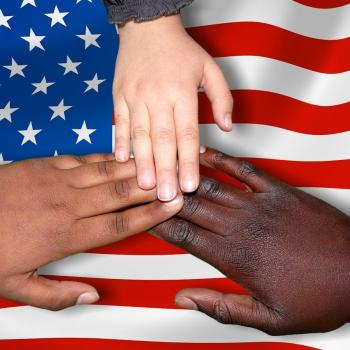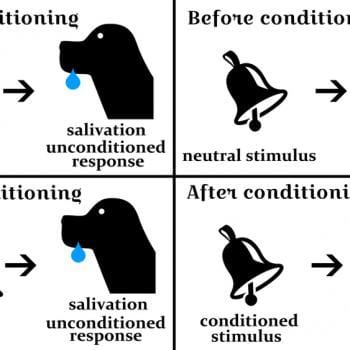As our country navigates the transition in national leadership, sociopolitical divisions that have become apparent. Until this is addressed, progress on most other issues will be impeded.
These divides manifest in multiple forms: racism, sexism, class-ism, xenophobia, religious intolerance, growing inequality and economic desperation. All of this is further amplified by existential threats like COVID and climate change. At the core, these challenges all revolve around a fundamental fear — a primal fear for one’s survival.
Yet whereas diseases and natural disasters threaten everyone equally, social and economic threats have a unique dimension — a threat to one’s survival advantage. This might be simply articulated as: “Others not like me are coming to usurp my position and take my resources.”
For much of human history, our species had to contend with a range of threats such as drought, flood, famine, war, and pestilence. These frequently resulted in long periods of scarcity of basic resources needed for survival — putting humans under conditions where “more” for some meant “less” for others. It is not surprising then, that the perception of life as a zero-sum game in a world of perpetual scarcity would become deeply wired into the human psyche.
It is also not surprising that under such conditions the ability to excel at playing this zero-sum game would be desirable and lauded — and that many would see the respect and rewards that come with such success as a primary life-goal. Accordingly, and especially in the West, competition, winning, dominance and control have become enshrined as a virtual religion — something that shapes and propels many of the dominant institutions of society.
Given the perception of society as a pyramid of wealth in a world of scarcity, those privileged to be at the top would like to believe this is the rightful, natural order of things. It is understandable that such people might then feel threatened when anyone “not like me” (women, people of color, homosexuals) aspires to achieve equal status. Firstly, if there is a limited supply of wealth, “more for you” truly will be “less for me”. Moreover, if an “other” achieves parity — or even exceeds me in some way — that suggests my superiority and privileged status may have been a sham all along. Now I don’t know who I am, and am not sure where I fit in the world.
It is also understandable that under such conditions, out of panic and desperation, one might turn to violence in an attempt to preserve or recapture the Old Order. This is likely a key factor in the Conservative preoccupation with gun ownership, the military and citizen militias. These function somewhat like a security blanket, comforting proponents with the sense that ultimately, “things will be OK”.
Resentment and the Vanishing Middle
So consider for a moment the perspective of the average Trumpian (or for that matter anyone in the Middle Class), For the past few decades, the dance of wealth-and-power spirals ever upward for those at the top — wealthy individuals and corporate “persons”, and the political figures who are increasingly dependent on them.
At the same time (at least when politics leans liberal) a few programs are instituted for those at the very bottom — welfare, food stamps, Medicaid, immigration services, and the like. John or Joan Average-citizen might be led to believe that their needs and interests are being ignored, while at the same time they are taxed to fund either extreme. In addition, their reward is to have “freedoms” limited by laws and other regulation (not being cognizant of the benefits we all enjoy by living in a civil society.)
Amplify this by the ever-increasing cost of living; trends that put adequate education and healthcare out of reach, trends in industry that make labor less necessary or well paid. There is a legitimate sense that whatever existential privilege some citizens have enjoyed in the past century, it may now be slipping away.
Basic Income as a General Remediation
Up to and following the recent national election, a host of interest groups, politicians, and pundits have been calling for policy changes and actions on a broad range of fronts. Righteous and necessary as many of these initiatives may be, it runs the danger of further exacerbating the above sense that “The Government” takes care of special interest groups while disregarding the needs of mainstream America.
A recent OpEd offered a simple suggestion for quelling the rage and hate and beginning to heal societal division: “Just DO something for these people!” Do something that directly, immediately makes the lives of Middle America better. Demonstrate that The Government cares about their lives and supports their efforts to be productive citizens.
Crass as it may seem, the way society is presently structured, money is the most immediate and ubiquitous solution to most social problems. If all citizens had a basic floor of economic security, much of the fuel for other social problems would likely be removed. One would be less inclined to feel threatened by an “other” if one’s own survival and comfort were assured.
Even those who support robust social welfare programs might spend months or years wrangling over the priorities and which interest groups should be funded. For example, the single-payer healthcare movement has been active for several decades and has seen little progress. In contrast, no one but the hardcore survivalist will argue about the utility of money.
Conservatives who object to a “nanny” state which decides what the individual’s needs are and how they should be met, ought to welcome the concept of a universal basic income (“UBI”) that puts personal responsibility squarely with the individual. Let people decide which of their needs are most pressing. Yes, some will misuse the funds – we are a human species – but early studies like Canada’s “Mincome” experiment suggest that the majority of recipients use such funds constructively.
The case for a UBI is increasingly being made by range of political leaders, academicians, and industry leaders. Ongoing trials around the world are demonstrating its utility and benefit.
Can We Afford It?, Can We Afford Not to Do It?
Basic income detractors generally default to several reflexive objections: “we can’t afford it”, “it’s paying people not to work”, “it’s free money for nothing”, “why give Bill Gates $1000?”.
Rather than a handout or welfare, a shift in perspective might consider UBI as a venture investment or a social dividend. In the venture capital world, funds are provided in hopes of launching a new productive enterprise. It is expected that most efforts will fail after the first few years, yet in the larger picture, such investments are still worth making. Moreover, when an enterprise succeeds. all stakeholders share in some manner of dividend or benefit. The premise of UBI is that we are all stakeholders in society at large — “we all do better when we all do better”.
Those who worry that creating additional money will inevitably lead to inflation misunderstand the principles by which debt-based currency works at the national level. Today’s money supply is designed to fluctuate based on the needs of the economy. The nation currently has vast needs: healthcare, education, infrastructure repair, crumbling public services, energy transition, climate mitigation, and a host of others. Yet all of these suffer from a central causative factor: not enough money! So long as additionally created funds are applied toward producing new value (rather than squandered in financial gamesmanship) the economy remains robust and noninflationary.
———————————
The experiment in freedom and democracy which created the potential embodied in our United States is one of the grandest of human enterprises. In this national venture are all stakeholders, and there is benefit enough for all to be included.
Image: Photo by Brooke Herbert/The Oregonian

















